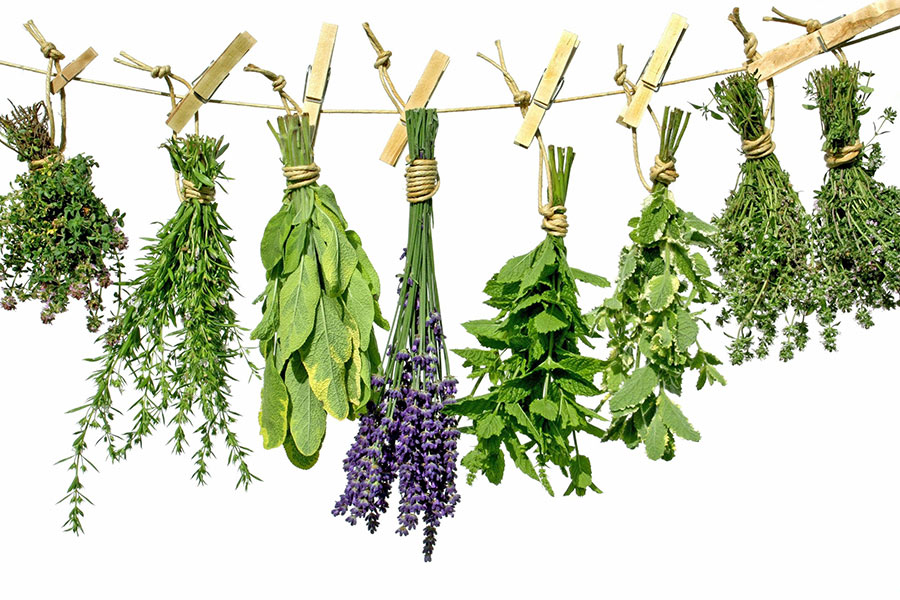Hippocrates once said, “let medicine be they food and thy food be thy medicine”. This motto has been the approach to health and wellness for thousands of years. The use of cooking herbs and plant based medicines has been practiced throughout human history, and it is only now in modern day that we are seeing a shift from holistic medicine to pharmaceuticals. This shift comes from a division of Eastern vs. Western medicine, where most people think they must choose one over the other. However, both branches have their time and place and can be used in combination in order to attain maximum health. Through preventative medicine and holistic practices such as Ayurveda, illness and disease can be avoided through living a balanced lifestyle. And when serious sickness does strike, pharmaceuticals can be life savers.
Ayurveda approaches the division between conventional and holistic medicine through an inclusive perspective that removes all barriers and finds the wisdom in both. It sees that the sharing of information is essential for there to be positive growth and change in our world today, and strives to recognize the unity of life. An ideal system of the future would be one that incorporated both Western and Eastern philosophy so that the benefits of both would be available to the collective mankind. The combination of the philosophies behind both Eastern and Western medicine is the answer to an overall healthier population. While Western medicine is still in the beginning stages, Ayurveda has been around for thousands of years. Both have been proven to work, so why should we have to choose between one or the other when there exists both? Each branch has so much to offer, and are be powerful catalysts of health when combined.
When it comes to herbs, Ayurveda recognizes that all substances have energetic properties, and all plants have the potential for therapeutic application. It’s looking at the character of the whole plant which makes it such a powerful healing tool. By taking a holistic approach and using herbs as whole foods, they can be recognized in personality as well an active component. Therefore, ingesting herbs will help supply the body with nutritional nourishment in the form of vitamins, minerals and trace elements. The primary role of holistic herbalism is to support the body’s inherent healing capacity, and therefore have fewer side effects than concentrated pharmaceuticals. Traditional healing with the use of herbs can be used in conjunction with the occasional use of Western pharmaceuticals. By combining ancient knowledge along with the discoveries of modern day, we can take an intersectional approach to healing. While herbs carry the personality of the entire plant being consumed, pharmaceutical drugs are isolated concentrations of the active compounds found in that herb. The nature of having such a concentrated combination of certain chemicals can backfire with a series of unwanted side effects. This medicine is far removed from the way nature intended it to be ingested, and therefore should be used with caution and acknowledged that they have a different time and place in the treatment of illness.
While pharmaceuticals can be dangerous and can be taxing on the body, herbal remedies provide gentle support and are more practical for everyday use. It is very unlikely to overdose on herbs and most of them can be consumed without side-effects, making them safe and effective when it comes to supporting overall well being. They can be used to spice up your dinner and provide flavor along with nutritional support for health and vitality! These powerful little herbs also bring us the loving and nourishing light from the sun, which helps us avoid disease and live full lives to further transmit the life given to us from plants into love.
Some of common Ayurvedic herbs are:
Ashwagandha: strengthens the immune system, relieves stress, and boosts energy levels
Shatavari: used to support the digestive system and as a nerve tonic
Holy Basil: cleansing and balancing, promotes longevity
Gotu Kola: supports respiration, skin health, stress relief, and inflammation
Bitter Melon: maintains kidney health, purifies skin and blood, cleanses the body
If you’re curious how to use Ayurvedic herbs in your kitchen, join us in our upcoming workshop on May 20th. We hope to see you there!
Many blessings,
Santa Cruz Ayurveda
